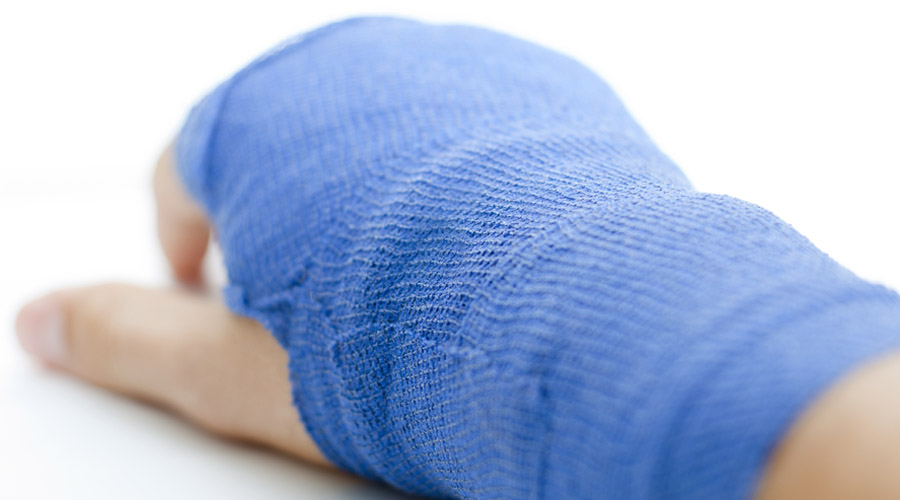Beware the slasher!
From the International Safety Equipment Association:

You’ll never see it coming.
Your hands will be working on a machine, or guiding a board through a saw, or just resting in the wrong place at the wrong time.
You see the blood before you even feel the cut. You can’t believe your eyes, but there it is: a big nasty gash across the palm of your hand, a deep slice across your knuckles, a jagged blood-oozing gap where you had a finger just a second ago.
The invisible Slasher lurks around your work site 24/7. And he’s coming for your hands.
Your only defense: gloves designed specifically for cut protection.
The injury itself isn’t the only gruesome part. It’s what’ll happen after you get cut that really hurts: lost work time, lost income, more doctor visits and medical bills than you ever thought you’d have in your life.
Hand Injuries Are a Scary — and Expensive — Problem
- The hand is the second most common body part injured in the workplace, reported Industrial Safety & Hygiene News.
- More than 42% of nonfatal occupational injuries to upper extremities in 2017 involving days away from work in private industry involved hands.
- Of the 286,150 nonfatal occupational injuries to upper extremities in 2017 involving days away from work in private industry, 121,860 involved hands, the U.S. Bureau of Labor Statistics reported.
- A hand injury can cost from $540 to $26,000, according to the National Safety Council. (Think medical costs, inability to work, and a host of hassles and expenses that come with serious injuries.)
Spooky Stats
- 70.9 percent of hand and arm injuries could have been prevented with personal protective equipment, specifically safety gloves, according to OSHA.
- 70% of workers don’t wear hand protection.
- Of those who do, 30% don’t wear the right kind of glove for the task.
Defeat the Slasher
- Don’t let your hands become a horror show.
- Protect your livelihood by wearing the right gloves for the right job.
- Don’t have cut-resistant gloves? Talk to your employer. Get them. Wear them.
Looking for a reprint of this article?
From high-res PDFs to custom plaques, order your copy today!





